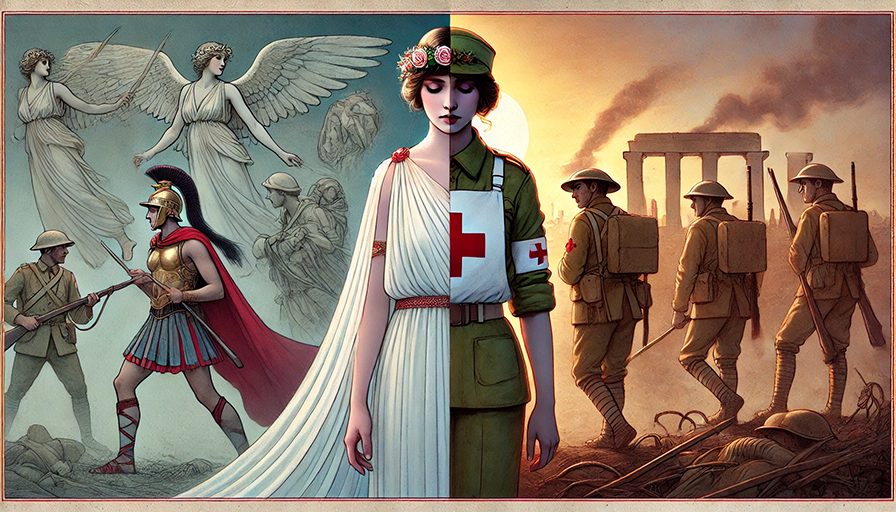The main female role in Ilium Ridge is that of Briseis. She plays basically the same role as she did in the Iliad, but with important differences.

In the original, Briseis was a Trojan princess, taken by Achilles and later seized by Agamemnon, which triggered a key conflict between the two heroes. Despite her royal status, her character represented the objectification of women in war, treated as property rather than as an individual with agency. When Agamemnon took her, it was more the wounding of Achilles’ pride that caused his decision to withdraw from battle, rather than his view of her as a person. Briseis has little control over her fate, and her voice is muted for most of the epic. When she speaks, it is mainly to express grief and longing for lost loved ones and protectors like Patroclus. Her character is defined by helplessness and sorrow, reflecting the subservient role of women in ancient Greek society.
In Ilium Ridge, Briseis is a nurse, giving her a more active, professional role. She shifts from being a passive prize to someone engaged directly in caring for soldiers during a modern conflict. She is no longer just a symbol of honor or status, but a character with agency and her own emotions, navigating her relationships amid the trauma of war. She is tender but defiant, someone who cares deeply for others but does not shy away from standing up for herself, showing a modern sense of autonomy. Her relationship with Achilles is emotionally charged but more balanced, focusing on mutual connection rather than possession or status, which aligns with modern themes of interpersonal conflict and love in war.

In short, in Ilium Ridge, Briseis is transformed from a passive prize into a complex, dynamic character, reflecting modern values of agency, care, and personal strength. While the original symbolizes loss and helplessness, the reimagined Briseis in Ilium Ridge shifts the focus to resilience, emotional complexity, and healing in the face of war. This adaptation enriches her role, aligning it with contemporary storytelling while still echoing the emotional themes of Homer’s original epic.

Leave a Reply